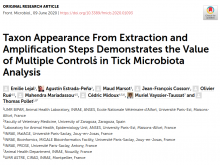R 4.0.2 is now the default version on migale
CHANGES IN R 4.0.2
UTILITIES:
* R CMD check skips vignette re-building (with a warning) if the VignetteBuilder package(s) are not available.
BUG FIXES:
* Paths with non-ASCII characters caused problems for package loading on Windows PR#17833.
* Using tcltk widgets no longer crashes R on Windows.
* source(*, echo=TRUE) no longer fails in some cases with empty lines; reported by Bill Dunlap in PR#17769.
* on.exit() now correctly matches named arguments, thanks to PR#17815



